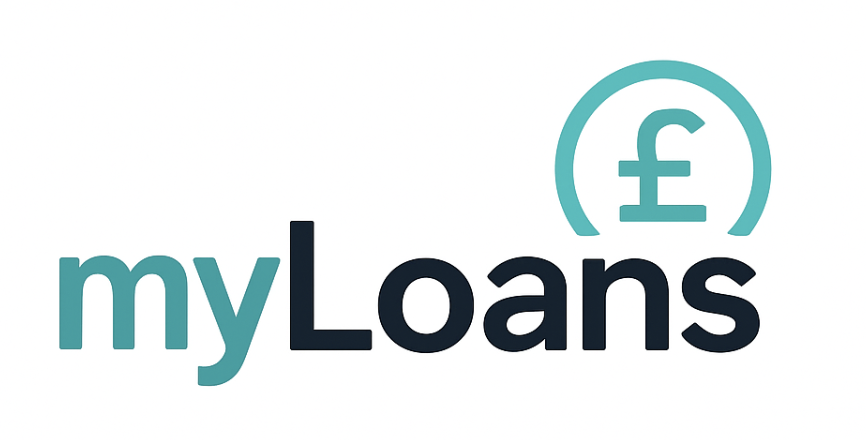Understanding the True Cost of Cash Advances
Using a credit card cash withdrawal – often called a cash advance – might seem like a convenient way to access money quickly. Whether you’re facing an unexpected bill or need cash urgently, most UK credit cards allow you to withdraw money from an ATM or bank. But the reality is that this service comes at a steep cost.
In this guide, we’ll explain the cash advance definition, outline cash advance charges on credit cards, and answer common questions such as “does withdrawing cash from a credit card affect your credit score?”
What Is a Cash Advance on a Credit Card?
A cash advance is when you withdraw money from a credit card either at an ATM, in a bank, or by transferring funds to your current account. Instead of being treated like a purchase, it is classified as a credit card cash withdrawal, which has its own set of fees and interest rates.
👉 Learn more about different ways to borrow money (inbound link).
How Does a Cash Advance Work?
When you take cash from your credit card:
-
The money withdrawn is added to your balance.
-
A cash advance fee is applied – usually 3–5% of the transaction (with a minimum charge of around £3–£5).
-
Interest starts immediately – there’s no interest-free grace period.
Example of a Cash Advance Fee
If you withdraw £200 with a 5% cash advance charge on your credit card, you’ll pay:
-
£10 fee (5% of £200).
-
Interest from day one (often at a higher rate than purchases).
That £200 could quickly cost you much more if not repaid quickly.
Cash Advance Charges and Fees
1. Credit Card Cash Withdrawal Fee
Almost all UK card providers charge a cash advance fee. This can be:
-
A percentage (3%–5% of the withdrawal).
-
Or a flat minimum fee (usually £3–£5).
2. Cash Advance Interest Rates
The cash advance APR is typically higher than purchase APR. For example:
-
Purchases: 18.9% APR (typical).
-
Cash advances: 29.9% APR or higher.
3. No Interest-Free Period
Unlike purchases, which often have up to 56 days interest-free if repaid in full, cash advances start accruing interest immediately.
4. ATM and Bank Charges
If you use an ATM, the operator may add a withdrawal fee. Overseas withdrawals add foreign usage charges (often 2.99% plus a fee).
👉 See MoneyHelper’s guide on credit card cash withdrawals (outbound link).
Does Withdrawing Cash From a Credit Card Affect Your Credit Score?
Yes, indirectly. Here’s how:
-
Increased Credit Utilisation – Taking a cash advance raises your balance, which increases your credit usage. A higher utilisation ratio can lower your credit score.
-
Potential for Missed Payments – Because of high fees and interest, it’s easier to fall behind. Late or missed payments damage your credit record.
-
Signals to Lenders – Regular credit card cash withdrawals may signal financial stress to lenders, making it harder to get approved for loans or mortgages in the future.
👉 Learn more from the FCA about credit scores and borrowing (outbound link).
Alternatives to Withdrawing Cash From a Credit Card
Before using a cash advance on your credit card, consider cheaper alternatives:
-
Personal Loans – Typically lower interest rates and fixed repayments. 👉 Compare UK personal loans (inbound link).
-
Overdrafts – While not always cheap, overdrafts can be less costly than cash advances.
-
Money Transfer Credit Cards – Some offer promotional low-interest transfers directly into your current account. 👉 See MoneySavingExpert balance transfer deals (outbound link).
-
Borrowing from Friends/Family – May avoid fees if repaid responsibly.
Managing a Cash Advance Wisely
If you absolutely must take out a cash advance using a credit card:
-
Withdraw only what you need – Don’t max out your cash limit.
-
Repay quickly – Interest starts immediately, so clear the balance as soon as possible.
-
Track charges – Review your statement for cash advance charges and cash advance fees.
-
Avoid repeat use – Regular cash withdrawals suggest poor money management and harm your credit profile.
Conclusion
A credit card cash withdrawal may seem like a quick fix, but with cash advance fees, higher interest rates, and no interest-free period, it’s one of the costliest ways to borrow in the UK.
If you’re asking “can I withdraw cash from a credit card?” – the answer is yes, but the better question is “should I?”
Always consider cheaper options such as personal loans, overdrafts, or money transfer cards. If you do use a cash advance credit card, repay it as quickly as possible to avoid escalating debt and long-term financial strain.
Alternatives to Payday Loans | Safer Borrowing Options
Payday loans are often marketed as a quick fix for cash emergencies, but they are not the only option available. Whether you’re facing an unexpected bill, car repair, or temporary cash shortfall, there are several alternatives to payday loans that may offer lower...
Payday Loans with Bad Credit | Direct Lender Options
If you’ve been refused credit elsewhere and are wondering whether you can still get a payday loan with bad credit, you’re not alone. Thousands of people in the UK search every month for options like “payday loans with bad credit” or “direct lender payday loans”. While...
Personal Loan Debt Consolidation UK – Is It Right for You?
Juggling multiple credit cards, overdrafts, or loans can be stressful and expensive. A debt consolidation loan allows you to combine everything into a single monthly repayment, often at a lower interest rate. In 2025, UK lenders from high street banks to online...
Emergency Loans UK – How to Borrow Fast in 2025
When an urgent expense hits — like car repairs, medical bills, or a broken boiler — quick access to funds can be essential. In 2025, emergency loans in the UK provide a way to borrow fast, with some lenders offering same-day decisions and payouts. This guide explains...
Top 10 Personal Loan Providers UK 2025 – Rates, Features & Eligibility
The UK personal loan market in 2025 offers more choice than ever, with banks, supermarkets, online lenders, and credit unions all competing for borrowers. The best deal for you depends on your credit score, loan size, and repayment term — but comparing providers side...
Best Debt Consolidation Loans UK 2025 | Top Options
Managing multiple debts can feel overwhelming, especially with credit cards, overdrafts, and personal loans all charging different interest rates. A debt consolidation loan can simplify your finances by rolling everything into one fixed monthly repayment — often at a...
Best Bad Credit Loans UK 2025 – Top Lenders Compared
Having a poor credit score, CCJs, or past defaults doesn’t mean borrowing is out of reach. In 2025, several UK lenders specialise in products designed for people with bad credit — offering smaller loans, flexible repayment terms, and eligibility checks that won’t harm...
Home Repair Loans UK – How to Cover Unexpected Costs in 2025
A leaking roof, broken boiler, or urgent plumbing issue can quickly turn into an expensive problem — often when savings aren’t available. In 2025, home repair loans in the UK provide a way to spread the cost of essential fixes into manageable monthly repayments. This...
Green Energy Loans UK – How to Finance Eco-Friendly Home Improvements in 2025
Eco-friendly upgrades such as solar panels, insulation, heat pumps, and EV chargers can cut energy bills and boost property value — but they require a significant upfront investment. In 2025, green energy loans in the UK provide a way to spread the cost of sustainable...
Moving House Loans UK – How to Cover Relocation Costs in 2025
From deposits and removal vans to solicitor fees and new furniture, moving house in the UK can quickly add up to thousands of pounds. Not everyone has savings set aside to cover these costs upfront. In 2025, moving house loans in the UK provide a way to spread...
Education Loans UK – How to Fund Studies and Professional Courses in 2025
Not all education in the UK is covered by government student finance. Postgraduate degrees, professional qualifications, and private training often require self-funding — with tuition fees and course costs running into thousands of pounds. In 2025, education loans in...
Holiday Loans UK – How to Spread the Cost of Travel in 2025
Holidays can be some of the most rewarding experiences of the year, but they often come with a price tag that’s hard to cover upfront. From flights and hotels to all-inclusive packages and once-in-a-lifetime trips, the costs can add up quickly. In 2025, holiday loans...
Best Personal Loans UK 2025 – Top Lenders Compared
The UK personal loan market in 2025 is more competitive than ever, with high street banks, supermarkets, online lenders, and credit unions all offering products to suit different needs. Choosing the right provider can save you hundreds in interest and ensure...
Medical Loans UK – How to Finance Healthcare Costs in 2025
While the NHS covers most essential treatment, waiting lists, private care, and specialist procedures mean many people face out-of-pocket medical expenses. From dental work and fertility treatment to cosmetic surgery and urgent private healthcare, costs can run into...
Car Loans UK – Personal Loan vs Hire Purchase vs PCP in 2025
Buying a car in 2025 usually means more than just choosing the right vehicle — it also means deciding how to pay for it. In the UK, the three main options are a personal loan, hire purchase (HP), or personal contract purchase (PCP). Each has its own advantages,...
















